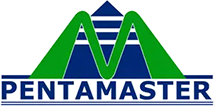GEORGE TOWN: Pentamaster has locked in RM314mil worth of test-equipment orders to be delivered from now until early 2019 to different market segments.
Group chairman Chuah Choon Bin said the orders were for the smart sensor device markets, the automotive and the intelligent automated robotic systems (i-ARMS) markets.
About 20% to 30% are orders from the automotive and the intelligent automated robotic system (i-ARMS) markets.
Our proprietary i-ARMS addresses the needs of manufacturing firms that want to automate its manufacturing processes.
The RM314mil orders were secured by its subsidiary Pentamaster International Ltd (PIL), a listed entity in Hong Kong, which contributes over 90% of Pentamaster Corp’s revenue.
Moving ahead, Chuah said Pentamaster Corp’s growth can reliably depend on the growth in the automotive and the intelligent automated robotic system (i-ARMS) markets to offset an eventual slowdown in the smart sensor segment, which has grown consecutively for the past 10 quarters.
The group sees vast potential and opportunities in the factory automation segment as this will help to arrest rising labour costs. Automation would also help to resolve some of the challenges revolving around the shortage of skilled talent.
“The market size for factory automation is estimated by Frost and Sullivan to be US$70bil to US$84bil in 2016 with a compounded annual growth rate (CAGR) of 1.0% to 5.0% in 2017 and beyond,” Chuah said.
“We grew 87.1% to RM284.2mil in 2017, from RM151.9mil in 2016, primarily contributed by the automated equipment segment which accounted for 81.8% of the group’s revenue.
“Last year’s growth was the best in the 22- year history of the group,” he said.
According to a report by Frost and Sullivan, revenue from semiconductor ICs in the automotive sector stood at US$22.9bil in 2016 with an expected CAGR of 10.3% from 2015 to 2020.
“Furthermore, sales of electric vehicles is estimated by Bloomberg New Energy Finance to accelerate to 54.0% of total car sales by 2040, due to the tumbling battery prices resulting in electric vehicles having lower lifetime costs,” he added.
Pentamaster is now well positioned to broaden its market share in the test-equipment market with the presence of PIL in Hong Kong.
“On top of our traditional strong markets in the United States, Europe, and Japan, we want to want to penetrate into the Greater China region, which includes Taiwan.
“We also want to expand our sales in Asia-Pacific,” he added.
For the first quarter ended March 31, the group posted a pre-tax profit of RM15mil on the back of a RM99.3mil, compared with RM8.4mil and RM47.5mil in the same period 2017. — By DAVID TAN

